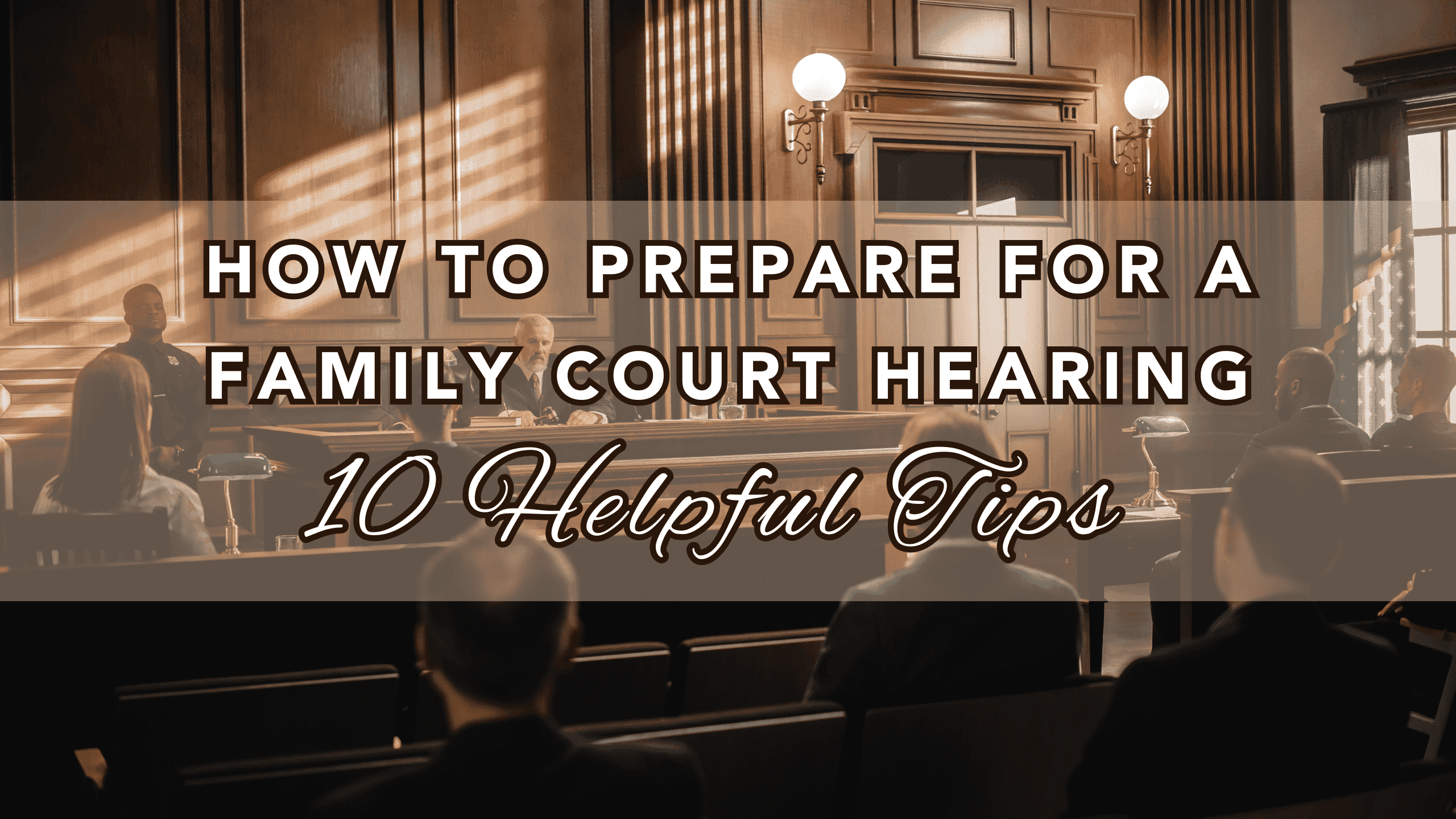How to Prepare for a Family Court Hearing: 10 Tips

Top 10 Court Hearing Tips & Tricks
If you or your spouse has filed for divorce, you will be required to appear in court before a judge at least once, and depending on the nature of your case, it might even be a few times.
We understand that going to court can be stressful and emotional. The good news is that if you hired OCFL to represent you, you don’t have to go alone.
But there are still some very important things to know and remember whenever you are in court.
- Dress appropriately. It’s best to come to court wearing business casual—that means no hats, ripped jeans, or shirts or shoes better saved for the beach. Court judges and staff should be treated with respect, and how you dress lets that come across even if it is your attorney that is doing all the talking that day.
- Arrive on time. Better yet, arrive twenty minutes early. It doesn’t look good if you are late for your own hearing, so plan to arrive early enough to check in with your attorney, use the bathroom, and get the jitters out before your case is called. Traffic and parking can sometimes be challenging near the courthouse so make sure you know how long it takes to get there and where you’ll park.
- Leave your children in the care of someone else. For a number of reasons, bringing children to court is seriously frowned upon, especially in Probate and Family Court. Find someone you trust to care for your children while you are in court. This will also allow you to focus on the very important issues being discussed in court that day.
- Be patient and plan ahead. Probate and Family Courts are extremely busy courts these days, and the daily docket list can be quite long before your case is heard. Even though you might be scheduled for a 10AM hearing, some cases can take hours until they are called. Having patience is crucial, and it doesn’t hurt to bring water and a snack.
- Know why you are in court. It seems like common sense, but make sure to check in with your attorney a few days before the hearing to understand why you will be in court, what is expected of you, if there is anything you need to bring with you, what the proceedings will be like, and to ask any questions so you are prepared. There are so many moving parts in a divorce case and we want our clients to feel like they have a good grasp on what’s happening even before they set foot in the courtroom.
- Speak clearly. At a minimum, you will be asked to state your name and be sworn in by the judge or the sessions clerk. Court proceedings are recorded, so speak loudly and clearly so that the record will be complete and the judge and staff can hear you. Remember to stand while you speak and keep your hands out of your pockets.
- Be respectful during your hearing. It is so important to give a good impression to the judge and respect the hearing process. This means that you should not talk or make faces while the judge, attorneys, or any parties are speaking. Refrain from loud sighs, whispering to your lawyer, laughing, shaking your head, eyerolling, etc. even if you strongly disagree with what someone is saying in court. If you must tell your lawyer something, write it down on a piece of paper and slide it in front of him or her. And don’t forget to silence your cell phone!
- Treat the judge with respect. When you are asked to address the judge, remember to say “Your Honor.”
- Trust your lawyer. Attorneys at O’Connor Family Law always put their clients’ best interests first. That includes understanding the ins and outs of your case and the applicable law, as well as presenting the arguments that best support your position to the judge. Attorneys are often not given much time to make their oral arguments, so know that we always lead with the strongest arguments in the courtroom and in our written briefs. Even if it seems like we didn’t say something important, there’s likely a very good reason we argued in a different way.
- Meet with your attorney immediately after the hearing. Make sure you touch base with your attorney outside the courtroom once the hearing is over so you can get an overview of what just happened. Judges often do not decide on a motion during the hearing and instead take it under advisement to think about it for a bit. Alternatively, if the judge has ruled on your case, you will need to know how it affects you. Sometimes the judge asks the parties or their attorneys to follow up after the hearing with more information or schedules another hearing. Be sure you understand what the status of your case is before you leave the courthouse.
Keeping all of these tips in mind ahead of time will help reduce any stress you might have about going to court, allowing you to remain calm, confident, and informed about what’s going on in your very important case.

About The Author
Attorney Ploetz is an experienced Massachusetts Family Law Attorney at O’Connor Family Law. To learn more about her story or book a consultation with Attorney Ploetz, click here.


